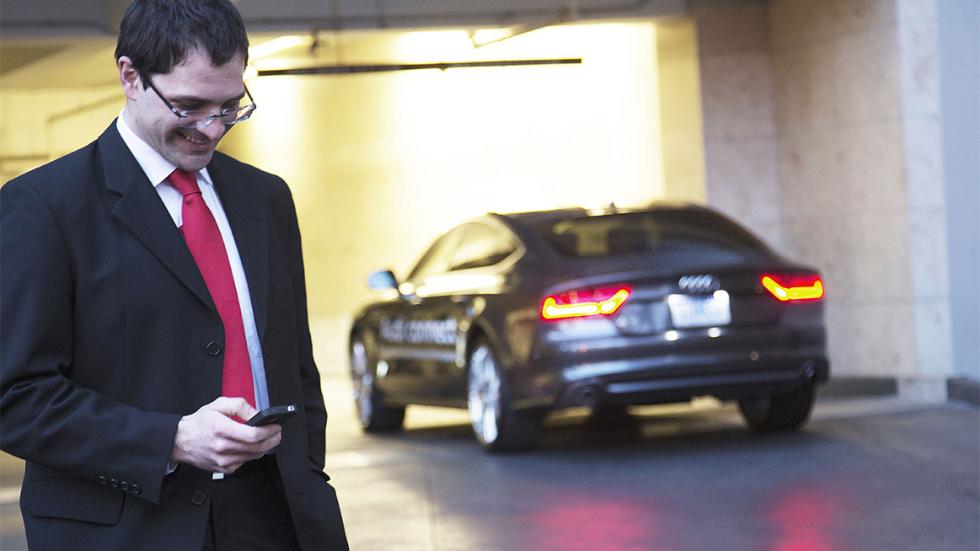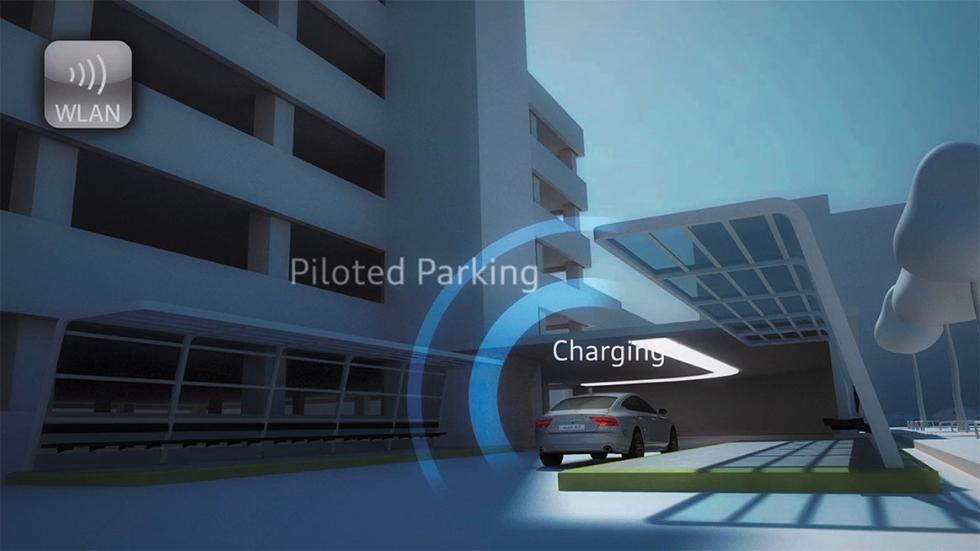When the robot fills up the electric car's “tank�
No more parking stress! In the future, it will be enough to drive up to a parking garage – then the car will do the rest.
The parking garage revolution

Total concentration navigating the narrow lanes. Sweaty hands while maneuvering into the tightest of parking spots. And to top it off, you can’t open the door wider than a crack while getting out – parking in a parking garage is rarely a pleasure. In the future, however, it might not be like this: Volkswagen’s Group Research is working on this problem, developing new solutions to allow drivers to avoid this stress by letting the car take care of everything. Volkswagen is a pioneer in the area of parking assistance systems, and its customers have appreciated the advantages of this option for years now. However, in the future parking should be even easier and more comfortable: we'll just drive up to the parking garage, get out and tell the car to park itself. It will then go and find a space and park up. Parking fees will be debited electronically, and when we return to the garage, we’ll use an app to call our cars back to the drop-off point.
Automatic parking? Technically "simple"
Helge Neuner, Head of Automated Driving for Group Research, notes that “automated parking is a particularly relevant customer wish. From a technical point of view, it’s a simplified task, since the environment in a parking garage is less complex than road traffic and cars move at lower speeds. This is why automated parking will be the first place customers can experience the advantages of completely autonomous vehicles".
Lower space requirements, greater efficiency

Driver and passenger comfort and convenience are not the only factors, however. There are also ecological, economical and urban planning arguments for automated parking. If there are no pedestrians in the building, it does not need pedestrian lanes, stairs or lifts. The traffic lanes can be designed more narrowly and around two square meters per parking spot can be saved when space is no longer needed to enter or exit the car. Operators of parking garages expect a space gain of more than 25 percent during a transitional phase with mixed use, and more than double this amount once operations are exclusively automated. Lower space requirements in parking garages mean lower construction costs and greater efficiency, and ultimately more green and recreational space in urban areas.
Robots for recharging electric cars
Volkswagen’s Group Research is also working on an innovation for electric vehicle owners that promises greater convenience: In the parking garage, mobile robots will connect the car with the power supply to charge its battery. “Clearly we have to consider how electric vehicles are charged if garages are not designed for people to enter them. Today’s wireless charging still faces limitations in transmission performance, so for the foreseeable future, charging via power cable will continue to offer advantages, especially for fast charging. A flexible charging robot that is programmed for a variety of systems could solve this problem".
The next step for the Volkswagen Group will be to create the first automated parking garages in the city, but to do so we will have to overcome some infrastructural challenges. “But that’s what we all want: to drive to our destinations, have the car find its own parking spot, and come back when we need it”, concludes Neuner.
Source: Volkswagen AG
